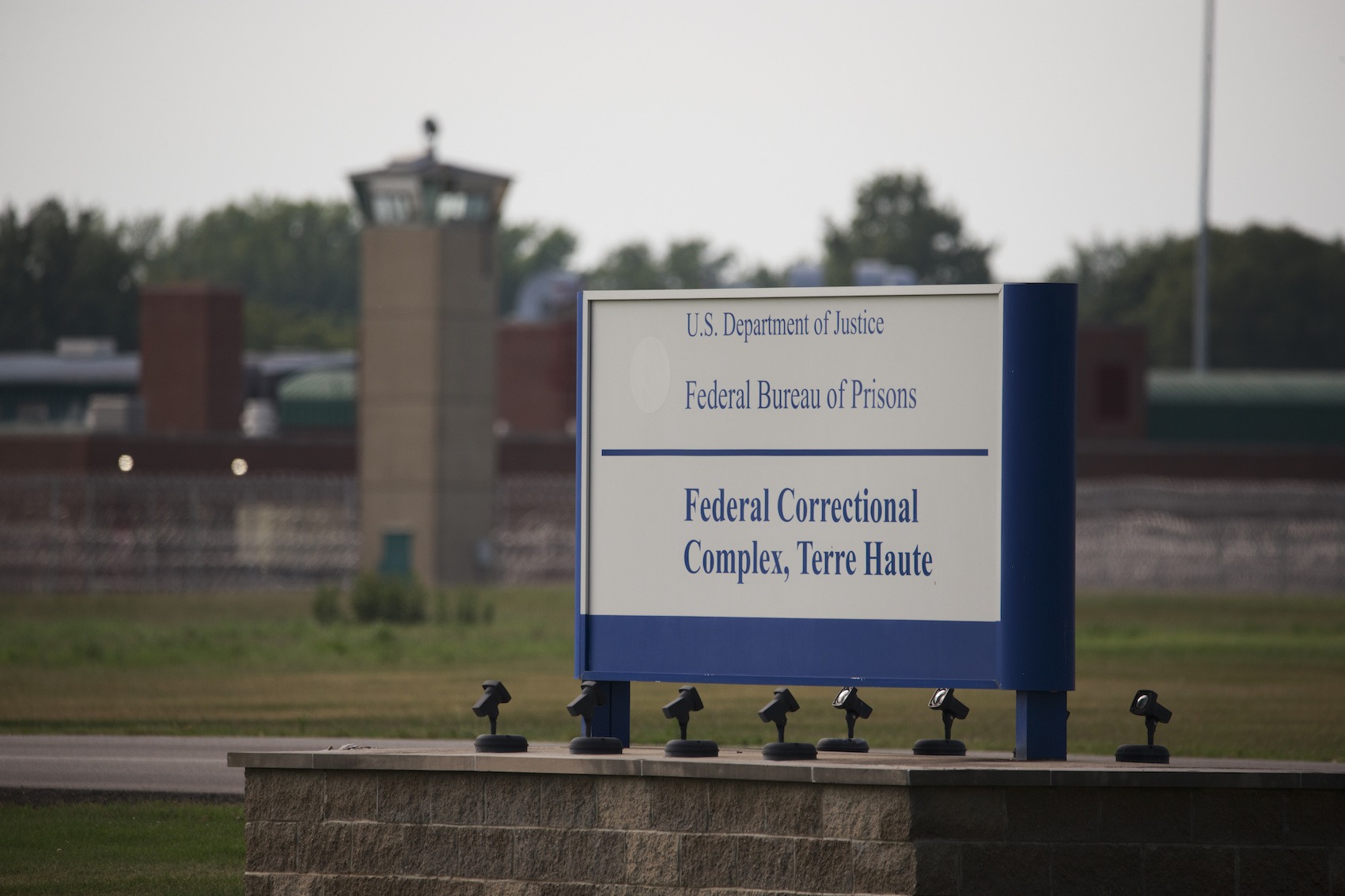U.S. Completes Second of Three Executions Set for This Week
In a 5-4 ruling early today, the Supreme Court cleared the way for the lethal injection of Wesley Ira Purkey. Lawyers had argued that killing Purkey, who had dementia associated with Alzheimer’s disease, would represent cruel and unusual punishment.

The U.S. government executed Wesley Ira Purkey this morning, despite claims that he suffered from dementia and no longer understood why he was going to be killed. The execution was the second since the government resumed federal executions on Tuesday for the first time in 17 years.
Purkey, 68, was pronounced dead at 8:19 a.m. Eastern time at the U.S. Penitentiary in Terre Haute, Indiana, according to the Associated Press, which had a reporter present. In a final statement, he apologized to his victims’ family and his daughter, the outlet reported. “This sanitized murder really does not serve no purpose whatsoever. Thank you,” were his last words.
His spiritual adviser, who had filed litigation over the government scheduling the execution during the COVID-19 pandemic, stood praying in the corner in full personal protective gear, reported the Indianapolis Star. Purkey was executed with a lethal dose of pentobarbital, a barbituate. As it was administered, he began to “blink rapidly” and his chest rose and fell “deeply,” according to the newspaper.
Purkey had been scheduled for execution at 4 p.m. on Wednesday but that was postponed after preliminary injunctions and a stay were issued over various issues with the case. His attorney sent a letter to the Department of Justice on Wednesday saying that the government “cannot lawfully execute Mr. Purkey any time after 11:59 p.m. Eastern on July 15,” citing federal code that outlined the issuance of a new death warrant and notification period.
After the government executed Daniel Lewis Lee on Tuesday despite his death warrant expiring the night before, legal experts raised questions about the legality of that execution. It is unclear whether the Federal Bureau of Prisons obtained a new death warrant for Purkey. The BOP did not respond to questions from The Appeal about the warrant.
Purkey’s final hours played out similarly to Lee’s. The Supreme Court cleared the way for Purkey’s death in a 5-4 ruling in the early hours of Thursday morning. The four liberal justices dissented. Justice Sonia Sotomayor, joined by Justices Ruth Bader Ginsburg, Elena Kagan, and Stephen Breyer, wrote that “proceeding with Purkey’s execution now, despite the grave questions and factual findings regarding his mental competency, casts a shroud of constitutional doubt over the most irrevocable of injuries.”
Purkey was sentenced to death in 2003 for kidnapping, raping, and killing 16-year-old Jennifer Long then dismembering her body, burning it, and disposing of it in a septic pond. He had also pleaded guilty in Kansas and was sentenced to life in prison for bludgeoning to death an elderly woman who had polio.
Purkey’s lawyers had said that executing their client was cruel and unusual punishment under the Eighth Amendment since he suffered from dementia associated with Alzheimer’s disease and could no longer understand why the government wanted to execute him. In court filings, they wrote that Purkey thought that Attorney General William Barr and the BOP had developed a plot to kill him because of his jailhouse lawyering and litigation he had filed against the prison. His lawyers had also said that Purkey suffered a traumatic childhood and was physically and sexually abused, including by a Catholic priest.
“This morning’s execution, following Danny Lee’s on Tuesday, marks a truly dark period for our country,” Cassandra Stubbs, director of the American Civil Liberties Union’s Capital Punishment Project, said in a statement. “After a rushed and truncated review, the courts abandoned the constitutional prohibition on executing people who lack rational understanding of the reason for their execution in order to allow the government to proceed with the shameful execution of Wes Purkey, despite his pending competency appeal.”
Long’s father, William Long, and stepmother were present at the execution. In a statement to the media after the execution, Long said he hopes that Purkey “rots in hell.”
“We took care of today what we needed to take care of,” he said, according to the Associated Press. “It has been a long time coming. He needed to take his last breath; he took my daughter’s last breath. And there’s some resolve. There is no closure, and there never will be because I won’t get my daughter back.”
The government is scheduled to execute Dustin Honken tomorrow. His would be the third of four executions scheduled by the DOJ for this summer.
